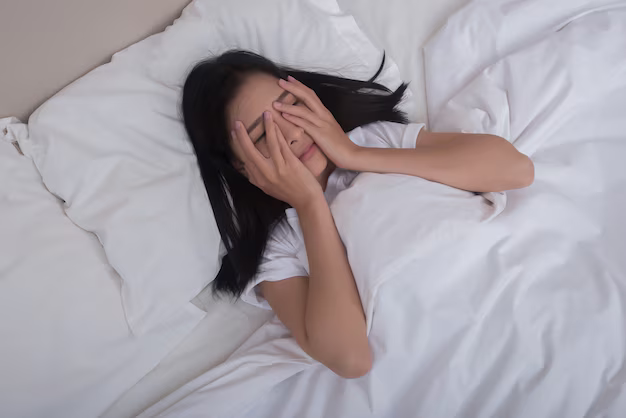Overview:
Sleeplessness, or Insomnia, is a common sleep disorder characterized by difficulty falling asleep, staying asleep, or waking up too early and not being able to return to sleep. It may be acute (short-term, often linked to stress or change in environment) or chronic (lasting for weeks or months). Insomnia affects both the quantity and quality of sleep, often resulting in daytime fatigue, irritability, poor concentration, and reduced productivity.
Clinical Presentation:
The pattern of sleeplessness varies among individuals. Some may struggle to fall asleep, others wake up frequently, and some wake up too early and can’t return to sleep. Chronic insomnia can significantly impact mental and physical health.
Common Symptoms of Sleeplessness
- Difficulty falling asleep: Despite feeling tired
- Frequent nighttime awakenings: Disrupted sleep cycles
- Waking up too early: In the morning and unable to return to sleep
- Feeling unrefreshed: Even after a full night's sleep
- Daytime drowsiness: Fatigue, or low energy levels
- Irritability, mood swings, or anxiety: Due to lack of proper rest
- Trouble focusing: Or remembering things clearly
- Headaches or heaviness: In the head, especially in the morning
- Dependence on sleep aids: Reliance on medications or substances to sleep
Diagnosis:
Diagnosis of insomnia is based on clinical history and sleep pattern assessment. It is important to identify whether the sleeplessness is primary or due to underlying conditions (e.g., depression, pain, GERD, hormonal changes).
- Sleep History & Sleep Diary: Duration, frequency, bedtime habits, and sleep environment.
- Questionnaires: Tools like the Insomnia Severity Index (ISI) to assess impact.
- Polysomnography (Sleep Study): May be advised in complex or unresponsive cases to rule out sleep apnea or periodic limb movement disorders.
- Rule Out Underlying Conditions: Thyroid dysfunction, anxiety disorders, chronic pain, or medication side effects.
Homeopathic Treatment for Sleeplessness
Homeopathy addresses sleeplessness by understanding the individual’s personality, stressors, emotional state, and overall constitution. The remedies do not induce artificial sleep but help restore the natural sleep cycle over time.
Key Remedies (Selected Based on Individual Symptoms):
-
Coffea Cruda
-
For sleeplessness due to an overactive mind or excitement. The person lies awake with racing thoughts, especially after joy or stimulation.
-
Nux Vomica
-
For sleeplessness from mental strain, late-night work, or stimulants like coffee or alcohol. Patient feels irritable and wakes up at 3–4 AM.
-
Gelsemium
-
Indicated when insomnia is due to anticipatory anxiety, fear before exams, interviews, or public events. Accompanied by dullness and trembling.
-
Ignatia Amara
-
Suited for individuals suffering from sleeplessness due to recent grief, emotional shock, or disappointment. They may sigh frequently and have a lump-in-throat sensation.
-
Arsenicum Album
-
For anxious individuals who wake up after midnight with restlessness and fear of death. They may change positions constantly and feel chilly.
-
Passiflora Incarnata
-
A gentle remedy often used for sleeplessness due to nervous exhaustion. Helps promote sleep without sedative effects.
Note: Homeopathy strictly requires case-taking by a qualified practitioner. Remedies should not be self-prescribed.
Benefits of Homeopathic Treatment for Sleeplessness
- Non-Sedative: Promotes natural sleep without the grogginess of sleeping pills.
- Treats Root Cause: Focuses on emotional and psychological causes like grief, worry, or burnout.
- No Dependency: Remedies are non-habit forming and safe for long-term use.
- Safe for All Ages: Suitable for children, adults, elderly, and pregnant women.
- Holistic Healing: Improves overall well-being, including mood, focus, and energy.
- Gentle and Natural: No side effects or withdrawal symptoms.
- Emotional Support: Helps manage associated issues like anxiety, depression, or emotional overload.


